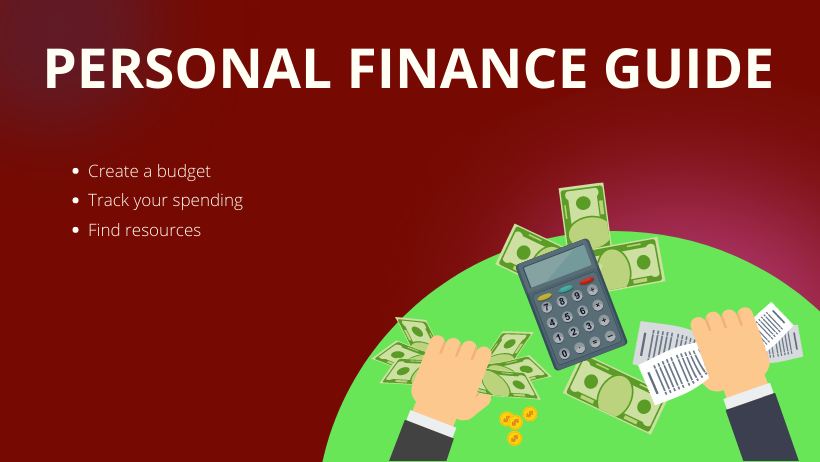
Personal Finance Guide
A Personal Finance Guide for Budgeting, Saving, and Tracking Your Financial Goals
BUDGETING
1. Parthean or Mint:
All of your finances in one place. I connect my banks and brokerages to see them all at a glance. Super helpful for tracking both your spending and your net worth, but especially helpful if you use your credit card a lot. I like to regularly see a broad overview so I know how much I’ve spent so far this month.
2. Separate accounts:
Create a separate account for savings (I like Ally bank because its
100% online with no minimums or fees) and immediately transfer your
planned savings amount into it the moment you get your paycheck. Pay
yourself first. It’s easy to accidentally spend money that you’re
supposed to be saving when it’s all sitting together in your checking
account.
3. Creating a budget: I recommend this process
- Find your monthly income. Hourly rate x 40hrs x 4weeks = monthly income***. Multiply this number by .78 or .76 or whatever based off your tax rate to get your gross take-home pay. If you’re taxed at 22% use .78, and so on
- Ask yourself how much you want to save each month. If that’s hard to think of, ask by year and divide by 12. It’s important to do this step before the ones below for bias reasons. You may need to change this number later but it’s good to have one in mind now.
- Find monthly expenses. Rent, phone, utilities(internet, electric, water), car(insurance, gas, and a bit extra for a ticket or oil change or something), groceries(don’t include eating out). Basics you NEED to live.
- Find the Surplus. income – savings – expenses = surplus. Sometimes this number is negative if income is too low, savings ambitions are too high, or expenses are too high. Don’t worry about that yet.
- Everything else: happy hour, going out to eat, travel, concerts, new clothes, etc. Trying to set a budget for this is tough but that’s why you’re keeping track of spending, to take the average of past months’ spending in this category and base it off that.
- If INCOME – SAVINGS – EXPENSES – FUN < 0 then congratulations you’re probably in debt. One or more of these inputs needs to change because your budget is not sustainable. Breaking down the numbers this way will give you the hard truth.
<br />Case study $30/hr or $63k/year on a monthly basis:
INCOME = + $4800
$30/hr x 40hr x 4weeks = $4800. $4800 gross monthly income
TAXES = -$1056
$4800 gross x .22 =$1056. Net monthly income after taxes is $3744
SAVINGS = -$740
401k match 5%= $240.
Roth IRA $250.
Saving acct $250.
EXPENSES = -$2000
Rent $1300
Utilities: AT&T $45, electric $70, water $10, = $125
Car: gas $65, $35 per month misc (when a cost comes up it’s rare but expensive so need to put a bit each month), insurance $100. $200
Groceries $375
EVERYTHING ELSE = $1004
<br />That’s a ton of money left over in this example. This is the most flexible section, but it’s where unexpected costs go as well.
This category needs to cover everythingggg. Christmas gift? AC filter? toothpaste? paper towels?
Your salary has a leveraged affect on this category. If the case was done with $25/hr salary instead of $30, the last category would only have $204 instead of $1004. At $20/hour, you’re in the negative. Your spending money does not have a linear relationship with you salary; for this reason, a pay raise or a side gig can have a HUGE effect on this category. Base expenses are never going to change so this last category is really the only variable one.
***this is not true monthly income. 4 weeks x 12 months = 48 weeks. The other 4 weeks worth of pay come in months with 5 Fridays. I try to keep these out of my budgeting so when I get 3 paychecks instead of 2 in a month (happens twice a year, 6 months apart) it’s like a bonus and I can spend it on whatever. Go buy some stocks or crypto.
SAVING / INVESTING
Compounding interest: An important concept to grasp to motivate you to care about all of
this. Getting ahead of the game makes things exponentially easier. Here
are a couple quick articles that will make it abundantly clear that you
need to start investing now.
https://fourpillarfreedom.com/the-math-behind-why-net-worth-goes-crazy-after-the-first-100k/
Investment/new worth growth tracking: a spreadsheet I use. Make a copy of this so you own and can edit it. Update the values on the 2nd page for your age and starting net worth. Toy with the SWR to see how it changes things. (SWR= safe withdrawal rate, the amount you can theoretically withdraw from your account every year and never lose the [inflation adjusted] principal value). It shows the present and future(this is where inflation on sheet two comes in) value.
https://docs.google.com/spreadsheets/d/1h4euUifOWF63JuU5dDkJlWThcQuoqIKzBL1UakRdPcA/edit?usp=sharing
Social Media: I have a ton of sources for informational content on my Passive Education With Communities article
Bonus Calculators/Trackers:
Coast FIRE calculator: https://walletburst.com/tools/coast-fire-calc/
Tracker/graph/calculator: https://lab.madfientist.com/

